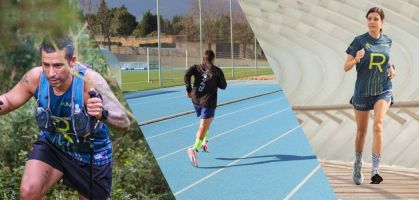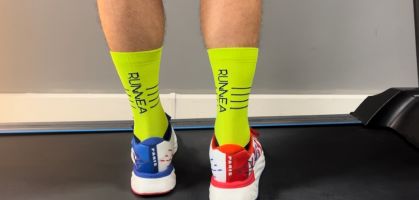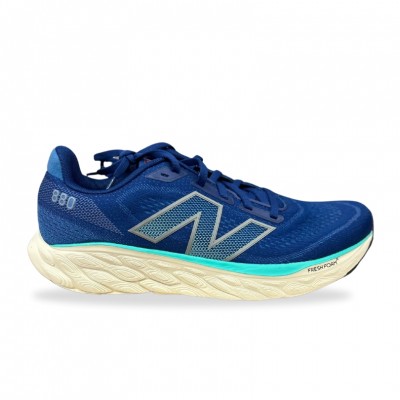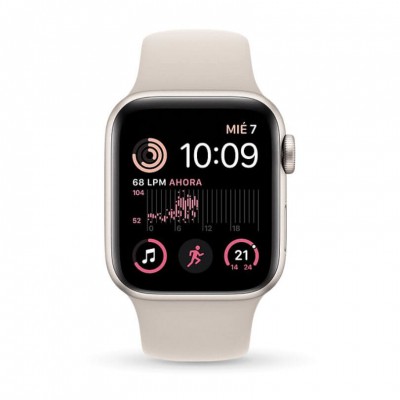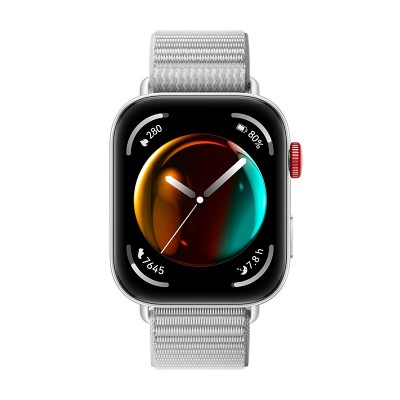Breathing hitching, heart rate accelerating, and beads of sweat trickling down the forehead; sensations that are repeated every time we put on our Running shoes and enjoy our favorite sport. Our body reacts to the stimulus caused by physical activity, but why do I get red when I go running? We turn to the expert advice of our Sports Director, Iker Muñoz, who will give us some clues to understand the reason for this effect.

Knowing what happens to our body during physical activity will be essential to avoid the consequences of training in an inappropriate way and improve our performance as athletes. Who has not finished a workout with a red face like a tomato? Well, relax because it is something relatively normal, a sharp change of our body to a stimulus. Below Iker Muñoz answers the various questions that arise around this issue, take note!
Why do I turn red when I go running?

We become red because exercise causes a redistribution of blood flow. When we exercise, the need for blood in our muscles and skin increases, and for this to happen, the blood that reaches the organs and muscles that are not directly involved in the activity will decrease.
In turn, as a result of an increase in internal temperature due to exercise, there is an increase in the amount of blood reaching the skin in order to facilitate thermoregulation. It is mainly due to these two mechanisms that we become red when we run.
- You may be interested in: Why do I choke when I start running and what can I do to avoid it?
Is it a good or a bad symptom? Should we stop if we get too red?
More than good or bad , it is something relatively normal. It is an acute change of our organism in response to a stimulus (exercise in our case). It is nothing undesirable.

It tends to be very common when it is very hot or when, on the contrary, temperatures are low. It is basically due to the need for thermoregulation.
- Sweating is the main thermoregulatory mechanism we have. Therefore, if the internal temperature is high and the external temperature is high and the relative humidity is also high, we will find it more difficult to thermoregulate. Therefore, sweating will increase.
Could it be that we are not breathing correctly?

No, it does not have to be. It is true that an out-of-tempo breathing, using valsalva movements, will not help us, in fact it will make it more difficult. But, in principle, getting red is normal.
It is not a synonym of having done a good training.
No, not at all. Reddening is only the visible part of a complex blood redistribution mechanism. Obviously, the more demanding the training, the greater the need for thermoregulation and the "redder" our legs and arms may be. But this is not a symptom of good training.
Not only in the face, but all over the body.
It is completely normal, the blood will go where it is most needed.
How can we prevent that redness from accompanying us throughout the training?

If the training is going to be very intense, we must understand that this redness will be with us because it is natural. For less demanding workouts, a progressive warm-up in intensity can make the redistribution of blood flow a little more progressive. But I repeat, the fact that our skin becomes a little redder (especially with training on cold days) is normal.
There are people who have difficulty sweating but immediately turn red, why is this?
Sweating is something that is totally individual. Some people sweat very quickly and others take longer. In general , trained athletes sweat earlier than untrained people because they are more efficient in thermoregulation.

In many cases, the sweating threshold will take longer than the redistribution of blood flow and therefore they will become flushed before they start sweating.
Thermoregulation, key during training
During exercise there is a redistribution of blood flow as our muscles and skin call for more blood. Turning red while running is relatively normal as our body is acting in response to a stimulus. However, a progressive warm-up in intensity can lead to a more progressive redistribution of blood.
While it is true that sweating is the main thermoregulatory mechanism we have, knowing what happens to our body during physical activity will help us to avoid overtraining. And you, are you one of those who come home with a red face or not? Tell us about it!
Read more news about: Running Training



